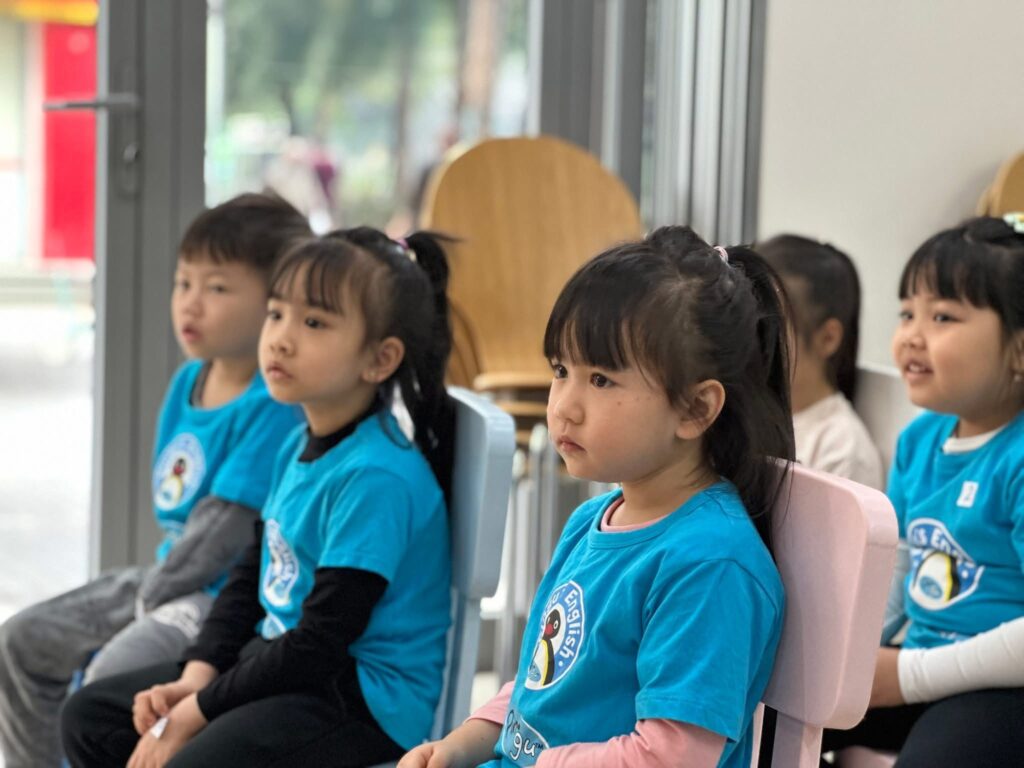News and Events » Power of Physical Activity in the Early Years
At Pingu’s English, we believe that the early years are about much more than learning ABCs and 123’s – they are about building the foundations of character, confidence, and kindness.
Young children are like sponges, absorbing the world around them. How they are guided through challenges, routines, and relationships will shape their behaviour for years to come. Within this blog, we explore how encouraging positive behaviour in the early years, not only helps children feel secure and happy, but also giving them lifelong skills in respect, empathy, and self-control.
Why Positive Behaviour Matters in the Early Years
Early childhood is a period of rapid social and emotional growth. At this stage, children are learning how to:
Positive behaviour helps children feel safe and valued, while creating environments where all learners can thrive. It also prepares them for success at school and beyond, where self-discipline, empathy, and teamwork are essential.


At Pingu’s English, our programs are designed to nurture not just language skills, but social and emotional development too. Here are some proven strategies we use to promote positive behaviour:
Children thrive on consistency. Predictable routines – whether it’s morning greetings, tidy-up time, or snack breaks – help them feel secure and know what is expected.
Celebrating small achievements with praise, stickers, or a simple “Well done!” reinforces good behaviour and boosts confidence.
Educators and parents / guardians are often children’s biggest role models. Demonstrating kindness, patience, and respect teaches children by example.
Helping children name their feelings – happy, sad, frustrated, excited – empowers them to express emotions rather than act out.
Of course, supporting positive behaviour isn’t always easy. Common challenges include:
These moments are opportunities for growth. With patience, guidance, and consistency, children can learn better ways to express themselves. In Pingu’s English, we see every challenge as a critical step toward building resilience.
Encouraging positive behaviour in the early years isn’t about discipline – it’s about guidance. It’s about showing children that kindness, respect, and cooperation are just as important as learning numbers and letters. At Pingu’s English, we are committed to creating nurturing environments where children feel safe, respected, and ready to thrive – not just academically, but socially and emotionally too.
Of course, supporting positive behaviour isn’t always easy. Common challenges include:
Pingu’s English programs foster not only language learning but also emotional and social growth.

Every child has the potential to become multilingual. The key is starting early, keeping it joyful, and staying consistent. With the right support, your child can benefit from the many advantages of multilingualism for life.
You don’t need to figure it all out alone. Programs like TOTS by Pingu’s English are designed to support you every step of the way; from your toddler’s first word to confident, expressive communication.
Explore the TOTS program from Pingu’s English and see why it’s one of the most trusted English courses for preschoolers around the world.
To provide the best experiences, we use technologies like cookies to store and/or access device information. Consenting to these technologies will allow us to process data such as browsing behavior or unique IDs on this site. Not consenting or withdrawing consent, may adversely affect certain features and functions. Cookie Policy